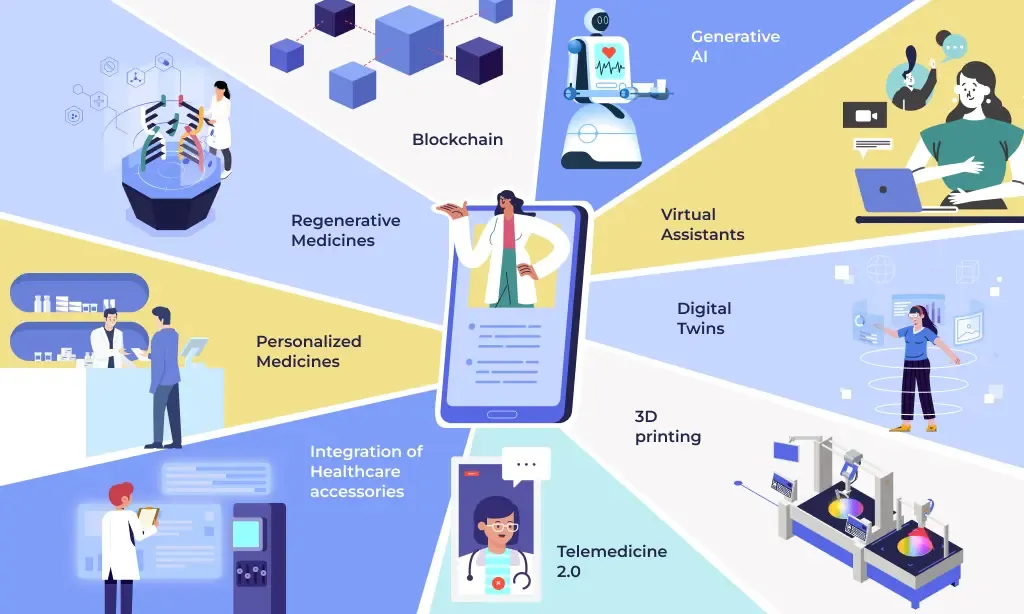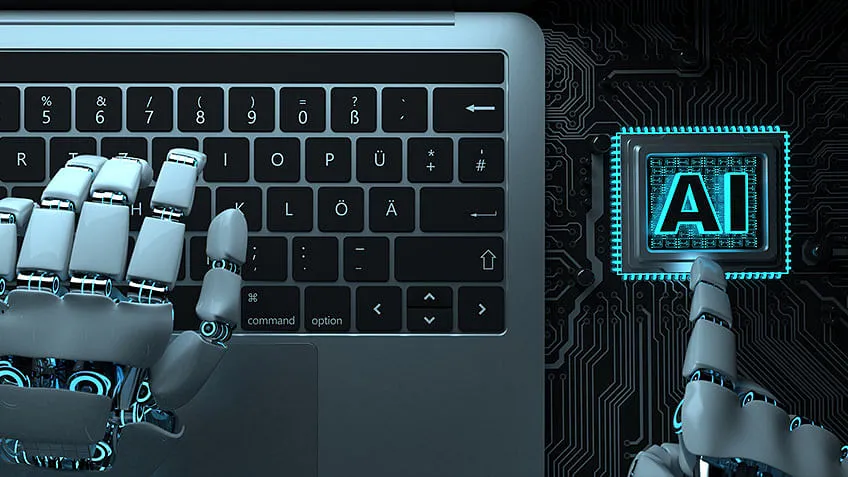Introduction
Artificial intelligence(AI) will, by 2024, create a sea change in healthcare not seen from any other sector. It’s not one of the great leaps of the Industrial Revolution,
But the crash of forward motion that will cut the spiraling costs we have been seeing over the last couple of decades and improve healthcare systems.
Now, let’s dive into how Artificial intelligence is really making a big difference in health care.
AI in Diagnosis and Treatment
Artificial intelligence makes diagnosis quicker and more efficient. Artificial intelligence algorithms can detect minute details in medical imaging, such as X-rays and MRI, even further and better than any delivery medical practitioners can.
For example, such Artificial intelligence tools are already contributing to early detection efforts related to cancer, heart diseases, and neurological conditions right now.
One of them is the customization of treatment plans: by analyzing a patient’s case history and genetics, along with present health data, Artificial intelligence can recommend the most efficient treatment. This would bring better outcomes for patients and reduce a hit-and-trial approach to treatments.
AI-Powered Virtual Assistants
Virtual assistants are taking an important place in patient care. Artificial intelligence-powered tools will take less burden of mundane tasks, such as appointment fixation, medication reminders, answering basic queries in health care, etc.
These virtual assistants will be available 24 hours and offer continuous support hence reducing the extra burden from health care systems.

Key AI Technologies in Healthcare 2024
| Artificial intelligence Technology | Application | Impact |
| Machine Learning | Predictive analytics, diagnostics | Improved accuracy in diagnosis and treatment |
| Natural Language Processing (NLP) | Medical records analysis, virtual assistants | Streamlined administrative tasks and patient interaction |
| Robotics | Artificial intelligence-assisted surgeries, patient care | Enhanced precision in surgical procedures |
| Computer Vision | Medical imaging, diagnostics | Faster and more accurate detection of medical conditions |
| Deep Learning | Drug discovery, personalized medicine | Faster and more accurate detection of medical conditions |
Predictive Analytics in Healthcare
Artificial intelligence-driven predictive analytics will help health providers to identify impending health complications before reaching critical levels. For example,
Artificial intelligence can analyze vast reams of patient data to determine the potential risk for readmission to a hospital or to identify people at risk from chronic diseases. This aids timely interventions, thereby saving lives and decreasing the cost of healthcare.
AI in Drug Development
Drug development is notoriously long and arduous. Artificial intelligence may hasten this with the identification of potential drug candidates in quicker times and prediction of success rates.
The Artificial intelligence models could make a direct analysis in the structure of compounds to predict their interaction with various diseases, hence probably taking research worth years down to months.
AI and Robotic Surgery
Robotic surgery has been in the field for quite a while, but Artificial intelligence shifted more advantage to it: less complication, more precision in surgeries.
The robots help the surgeon be in the know of real-time data during an operation, making surgery much safe and efficiently carried out.
Pros and Cons of AI in Healthcare
Pros
- Improved Accuracy: Artificial intelligence reduces human error in diagnostics and treatments.
- Efficiency: Streamlines administrative tasks and reduces the burden on healthcare staff.
- Personalized Care: Offers tailored treatment plans based on individual patient data.
- Cost Reduction: Decreases the overall cost of healthcare by optimizing resources.
- 24/7 Availability: Virtual assistants provide round-the-clock support to patients.
Cons
- Data Privacy Concerns: Artificial intelligence systems require vast amounts of data, raising privacy issues.
- High Implementation Costs: The initial cost of integrating Artificial intelligence into healthcare is substantial.
- Job Displacement: Automation may reduce the need for certain healthcare jobs.
- Bias in AI Algorithms: Artificial intelligence systems can inherit biases from their training data, leading to unequal treatment.
- Complexity: The technology is still evolving, and its complexity can pose challenges in implementation.
Facts and Figures
- $6.6 Billion: The estimated global Artificial intelligence in healthcare market size in 2024.
- 85%: The percentage of healthcare organizations expected to adopt AI by 2024.
- 20-30%: The potential reduction in healthcare costs with Artificial intelligence implementation.
- 45%: The increase in diagnostic accuracy reported in Artificial intelligence-assisted medical imaging.
Conclusion
Artificial intelligence is revolutionizing healthcare in 2024 by enhancing the accuracy of diagnoses, personalizing treatments, and streamlining operations.
While there are challenges, such as data privacy and high implementation costs, the benefits far outweigh the drawbacks.
As Artificial intelligence continues to evolve, its role in healthcare will only become more significant, ultimately leading to better patient outcomes and a more efficient healthcare system.
Related Post:
The Future of Web Development Every Developer Should Know
FAQs
1. How is AI used in diagnostics?
Artificial intelligence analyzes medical images and patient data to detect diseases early and recommend treatment options.
2. Can AI replace doctors?
No, Artificial intelligence cannot replace doctors but can assist them by providing data-driven insights and handling routine tasks.
3. What are the risks of AI in healthcare?
Risks include data privacy concerns, high costs of implementation, and potential biases in Artificial intelligence algorithms.


1 thought on “How AI is Revolutionizing Healthcare in 2024: What You Need to Know”